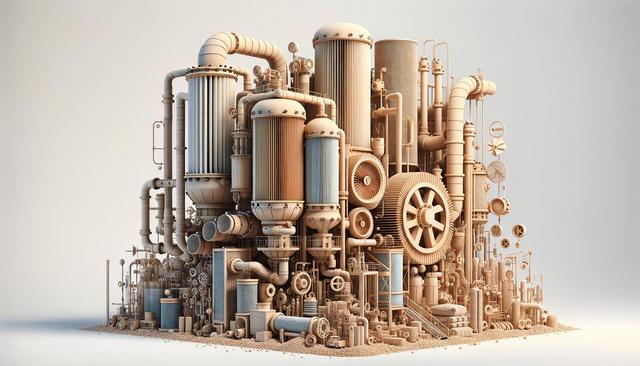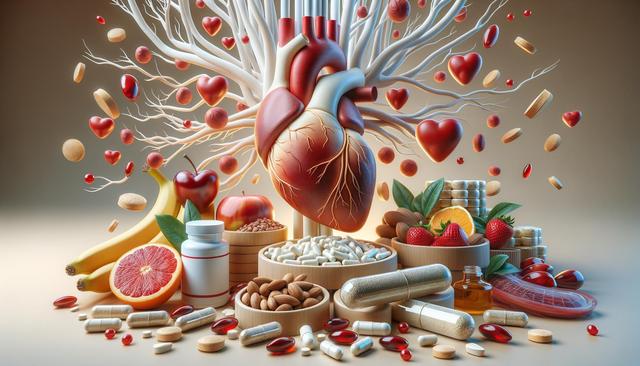Understanding the Role of Industrial Filtration
Industrial filtration is a fundamental process across many sectors, serving as a safeguard for equipment, product quality, and environmental standards. In manufacturing systems, contaminants such as dust, debris, chemical particles, and microbes can compromise the integrity of operations and final products. Filtration systems are designed to capture these unwanted materials from air, gases, and liquids, ensuring a controlled and reliable production environment. The importance of filtration extends beyond just cleanliness—it also plays a role in energy efficiency, equipment longevity, and regulatory compliance.
Different types of filtration methods are employed based on the specific industrial requirement. For example, air filtration is essential in cleanrooms and electronics manufacturing, while liquid filtration is widely used in food processing, pharmaceuticals, and chemical production. Gas filtration is critical in petrochemical plants and natural gas processing. Each of these applications demands a tailored solution that balances flow rate, pressure, and contaminant size. Companies often invest in advanced filtration systems to reduce downtime and avoid costly repairs or production delays.
Key Applications Across Industries
The applications of industrial filtration are diverse, covering a wide range of manufacturing and processing sectors. In the automotive industry, filtration systems are used to remove metal particles and other impurities from lubricants and coolants. In pharmaceuticals, sterile environments require high-efficiency air and liquid filters to prevent microbial contamination. Similarly, the food and beverage sector uses filtration to ensure purity and taste consistency.
Some of the most common industrial applications include:
- Oil and gas processing: Removal of solid particles and water from crude oil and natural gas streams.
- Power generation: Filtration of cooling water, fuel, and lubricants to maintain turbine efficiency.
- Textile manufacturing: Filtration of dye solutions and removal of lint and particles from air systems.
- Water treatment: Removal of sediments, microbes, and chemical contaminants for reuse or safe discharge.
Each application requires a specific type of filter media and system design, from granular activated carbon filters to membrane filtration technologies. The correct implementation leads to significant improvements in operational efficiency and product quality.
Technologies and Types of Filtration Systems
A range of technologies is employed in industrial filtration, depending on the type of media being filtered and the desired purity level. Mechanical filtration, using screens or mesh, is one of the most basic forms and is commonly used for removing large particles. For finer filtration, media such as sand, fabric, or synthetic membranes are used. Membrane filtration, including microfiltration, ultrafiltration, nanofiltration, and reverse osmosis, offers precise control over particle size removal and is widely adopted in high-purity environments.
Other notable technologies include:
- Centrifugal filtration: Uses rotational motion to separate particles from liquids based on density differences.
- Electrostatic filtration: Charges particles and captures them using oppositely charged plates, often used in air purification.
- Vacuum filtration: Ideal for separating solids from liquids under reduced pressure, enhancing the speed and efficiency of the process.
Choosing the right technology involves evaluating factors such as flow rate, compatibility with chemicals, operating temperature, and maintenance requirements. Innovations in filter materials and system automation continue to enhance performance and reduce operational costs.
Maintenance and Operational Considerations
Effective performance of industrial filtration systems depends heavily on regular maintenance and monitoring. Filters can become clogged or degraded over time, leading to reduced efficiency, increased energy consumption, and potential system failures. Establishing a robust maintenance schedule ensures the longevity of the filtration system and minimizes unplanned downtime.
Key operational considerations include:
- Monitoring pressure differentials across filters to detect clogging early.
- Routine replacement or cleaning of filter media based on manufacturer recommendations and usage conditions.
- Ensuring compatibility of filter materials with the chemicals and temperatures involved in the process.
- Training personnel to handle and troubleshoot filtration equipment effectively.
Digital monitoring and smart sensors are increasingly used in modern systems to provide real-time data, allowing for predictive maintenance and performance optimization. These technologies help industries maintain consistent quality while reducing labor and resource consumption.
Environmental and Regulatory Impact
Industrial filtration also plays a critical role in meeting environmental and regulatory standards. Many industries must treat their air emissions and wastewater before releasing them into the environment. Filtration systems help reduce pollutants, ensuring compliance with local and international regulations. For example, air filtration in industrial plants helps reduce particulate matter and volatile organic compounds (VOCs), contributing to cleaner air and healthier workplaces.
Water and wastewater filtration systems are vital in reducing the environmental footprint of manufacturing operations. Advanced filtration methods enable the recycling and reuse of process water, cutting down on fresh water usage and waste generation. In addition to being environmentally responsible, these practices often result in cost savings over the long term.
Governments and regulatory bodies continue to tighten standards on emissions and waste disposal, making efficient filtration systems not just beneficial but essential. Industries that proactively adopt high-performance filtration technologies are better positioned to meet these evolving standards while also demonstrating a commitment to sustainability.
Conclusion
Industrial filtration is an indispensable part of modern manufacturing, ensuring product quality, equipment protection, and environmental compliance. From basic mechanical filters to advanced membrane technologies, the range of systems available allows industries to target specific contaminants in air, liquids, and gases. With proper maintenance and the right technology in place, companies can enhance efficiency, extend equipment life, and meet regulatory demands. For any business operating in a production-intensive environment, investing in a reliable and well-designed filtration system is a strategic decision that supports both operational and environmental goals.




Leave a Reply